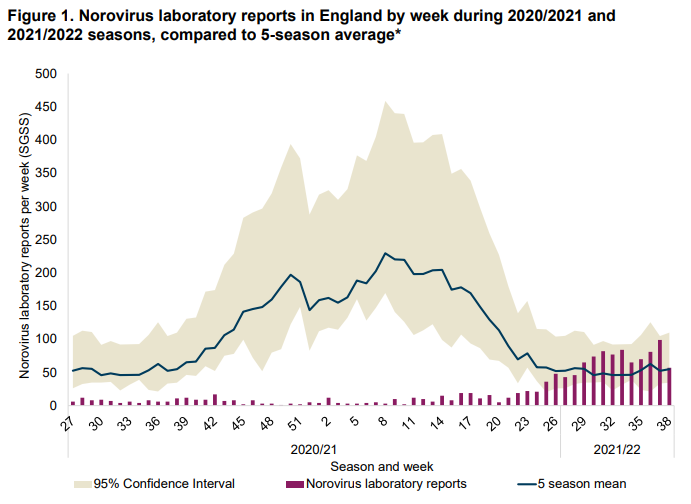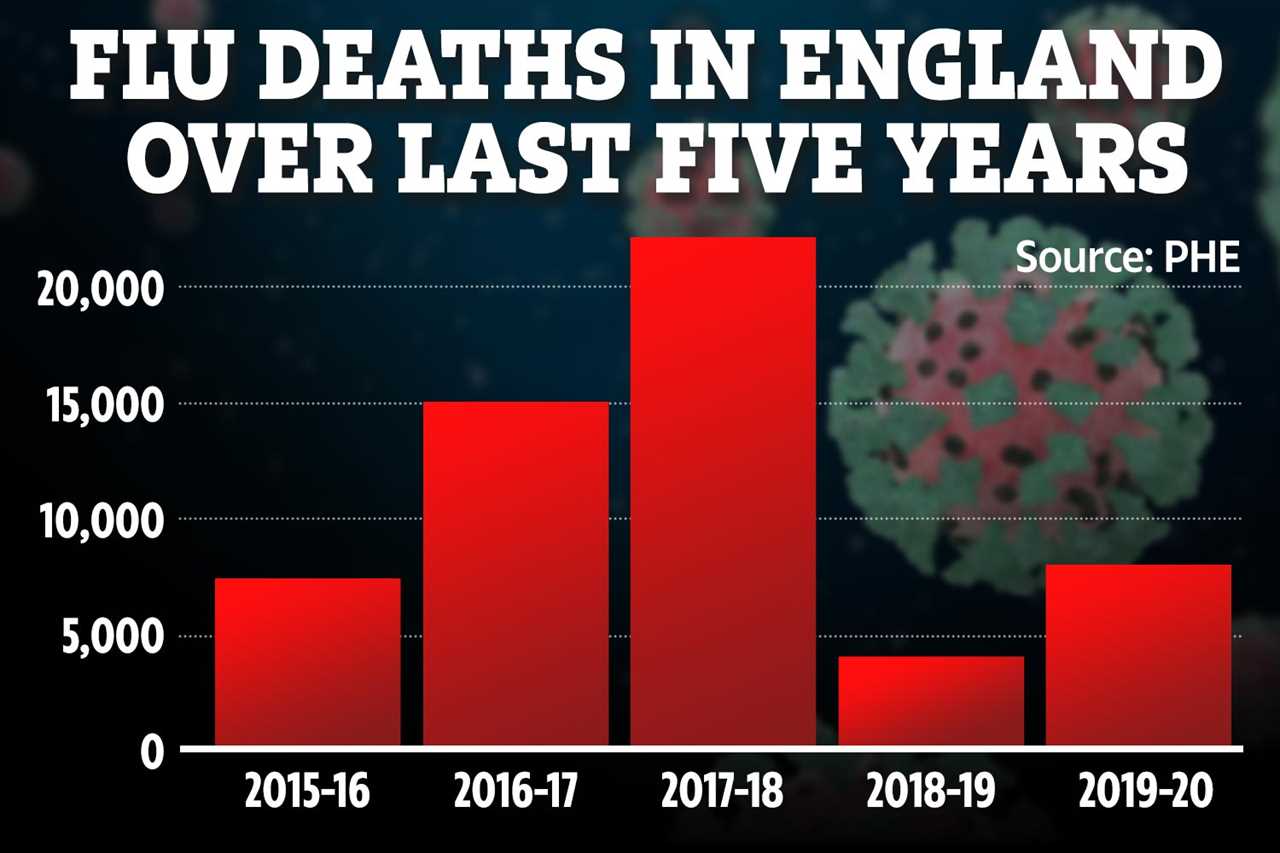NOROVIRUS cases have risen 40 per cent on the five-year average – sparking fears of a trio of rampant winter viruses to contend with.
During the later summer months the virus was already on the rise, but the latest data shows it’s now growing in numbers larger than usual.


The most recent UK Health Security Agency figures show reports of the nasty bug are up by 37 per cent already, with winter only just starting.
Most of these have been seen in educational settings, so since schools returned.
From the data up to September 26, the UKHSA report said: “Norovirus laboratory reports have been increasing since week 25 of 2021 and during weeks 35 to 38 the total number of reports was 37 per cent higher than the average of the same period in the previous five seasons pre-Covid-19.
“It is possible that further unusual or out of season increases in norovirus activity could be seen in the coming months.”
Government scientists had already warned months rates of the seasonal vomiting and tummy bug could explode from September.
They also feared flu could be particularly bad this year – with a possible 60,000 deaths and more jabs rolled out in preparation – but added norovirus to the list of concerns.
The experts said in a SAGE document: “During the past 18 months, diseases such as influenza, Respiratory Syncytial Virus (RSV) and norovirus, have been circulating much less in the population than in previous years.
“It is also possible there will be interactions between SARS-CoV-2 and other infections, both in combination and in competition. Any such effects are as yet unknown.”
Because we have all been washing our hands more, wearing masks and staying at home, there has been a drop in colds, flu and other seasonal illnesses spreading.
With lower immunity due to this – and now offices and schools have gone back with no more Covid restrictions – it is thought the NHS could quickly become strained as the service must also deal with coronavirus patients.
Most infections of the norovirus occur through contact with infected people or contaminated surfaces, or through ingesting contaminated food and water.
Symptoms include sudden onset of nausea, projectile vomiting and diarrhoea, but can also include a high temperature, abdominal pain and aching limbs.
Speaking to Trending In The News, Dr Sarah Jarvis, GP and Clinical Director of Patientaccess.com previously explained norovirus is the most common virus causing gastroenteritis in adults in the UK, but it’s also really common among kids.
She added: “That’s why there’s often a surge in cases when schools reopen.
“If you’re infected, it can be spread on your hands after you go to the loo. The virus can then be passed on by close contact or contaminated food.
STOP THE SPREAD
“For obvious reasons, then, hand washing is absolutely key. However, obviously it’s not always easy to get kids to wash their hands thoroughly every time they go to the loo.”
If you think you have caught the norovirus then you should avoid cooking and preparing meals for others for at least 48 hours after your symptoms stop, guidance states.
This is because norovirus can be spread through food contaminated by the virus when food is handled by symptomatic people/infected individuals.
You should also wash any clothing or bedding that may have been contaminated at 60C and where possible you should use disposable gloves to get rid of it.
It comes after the Department of Health launched a winter vaccines campaign to encourage everyone to get protected.
Dr Jenny Harries, chief of the UK Health Security Agency, said: “We are facing a challenging winter but we can all help ourselves and those around us by taking up the Covid-19 booster and flu vaccine, if eligible.”







